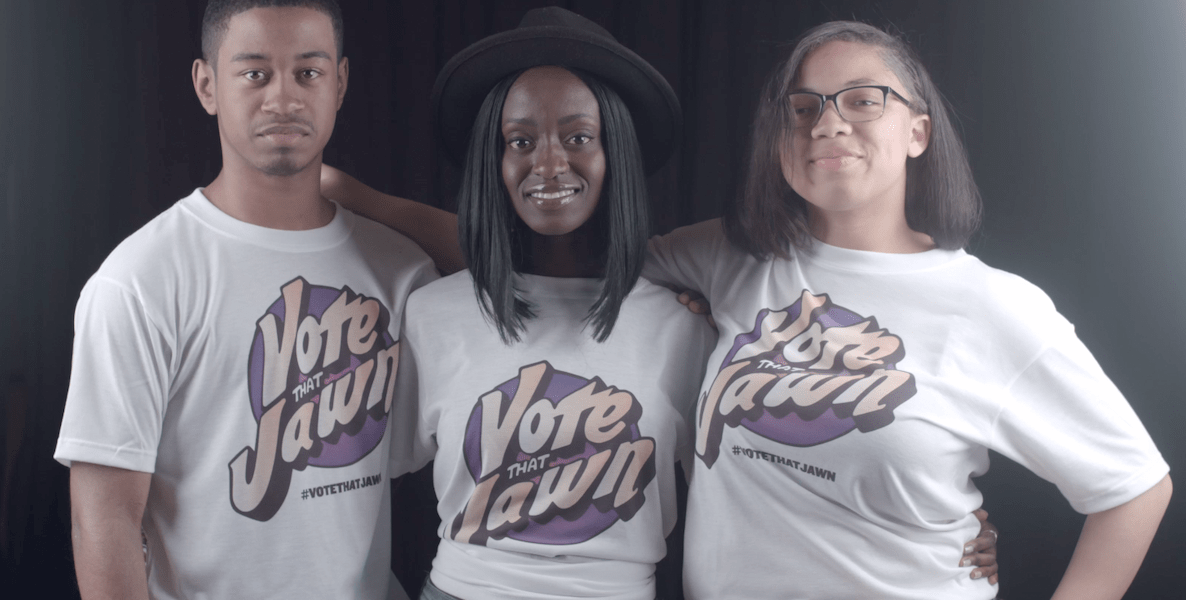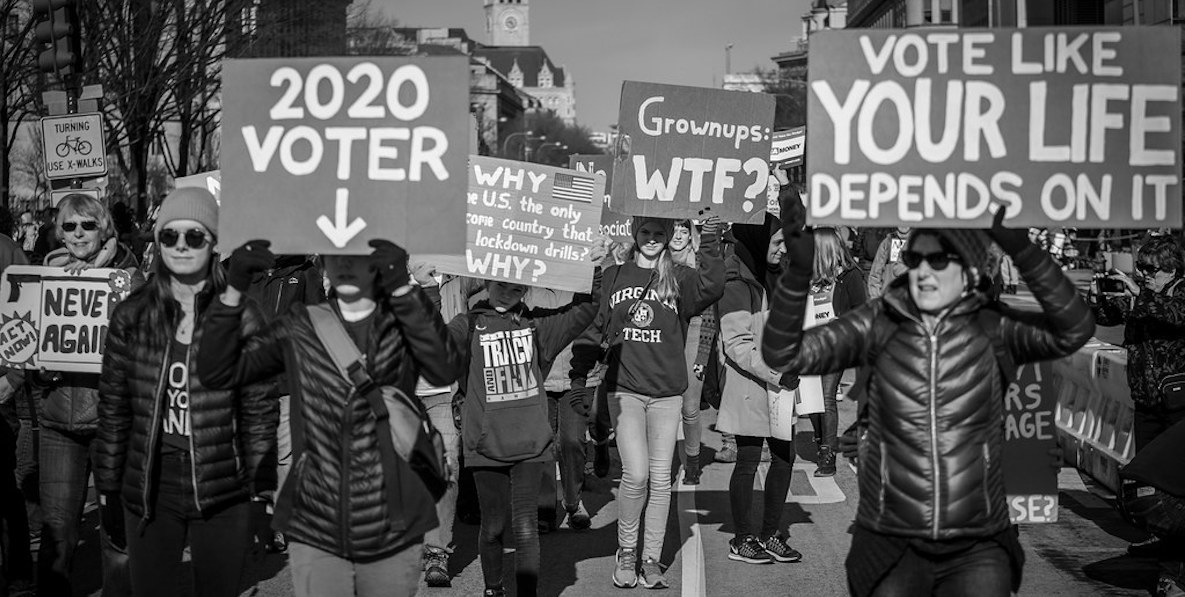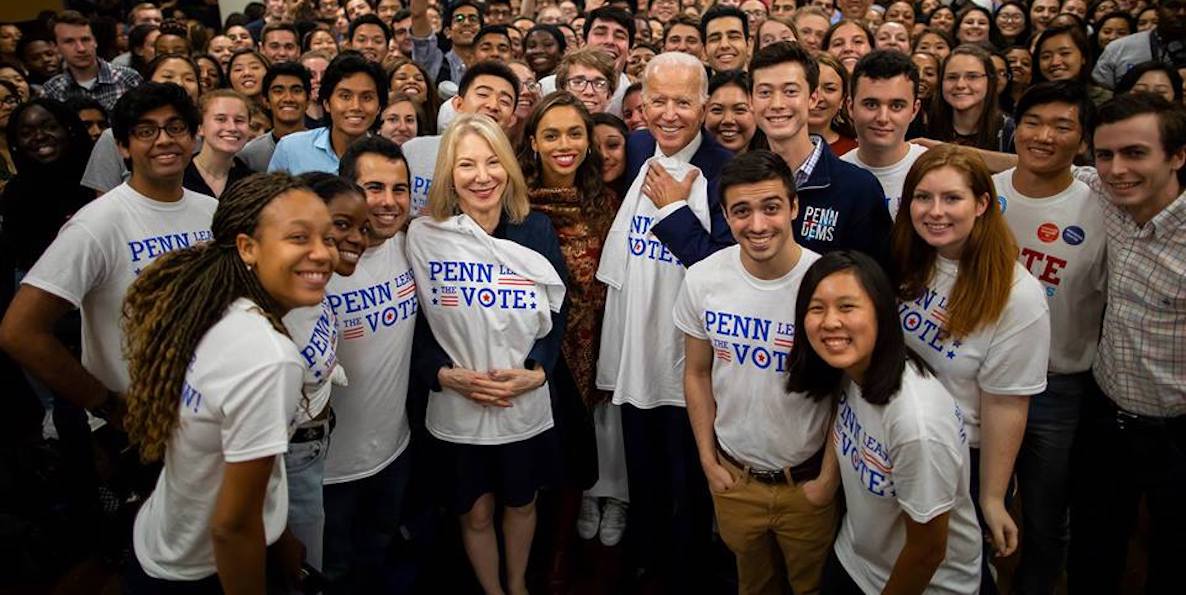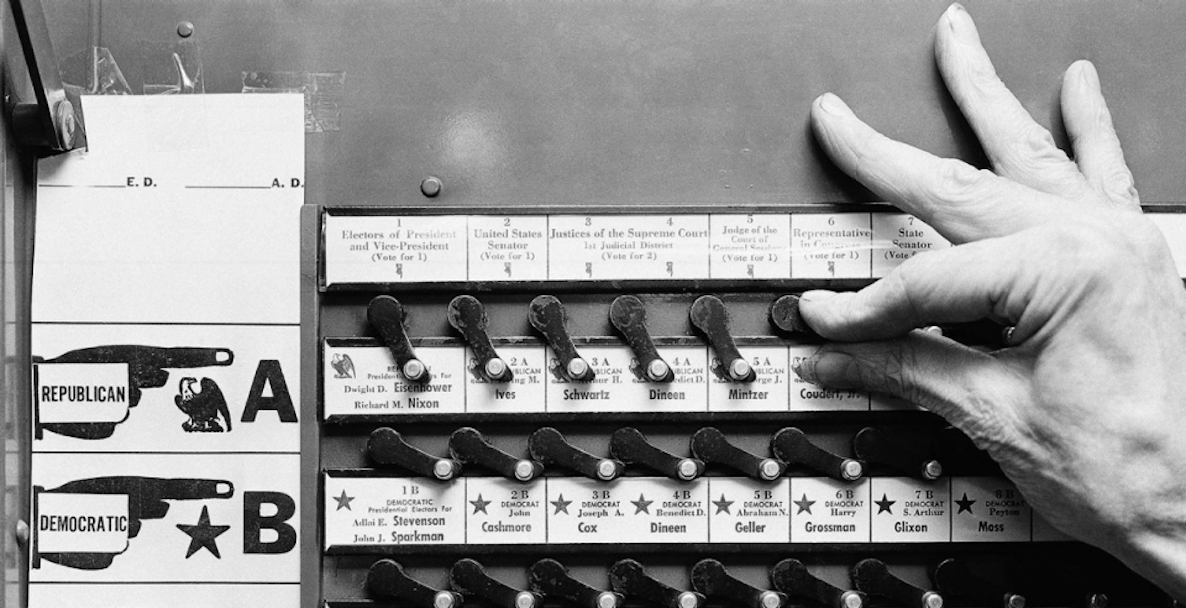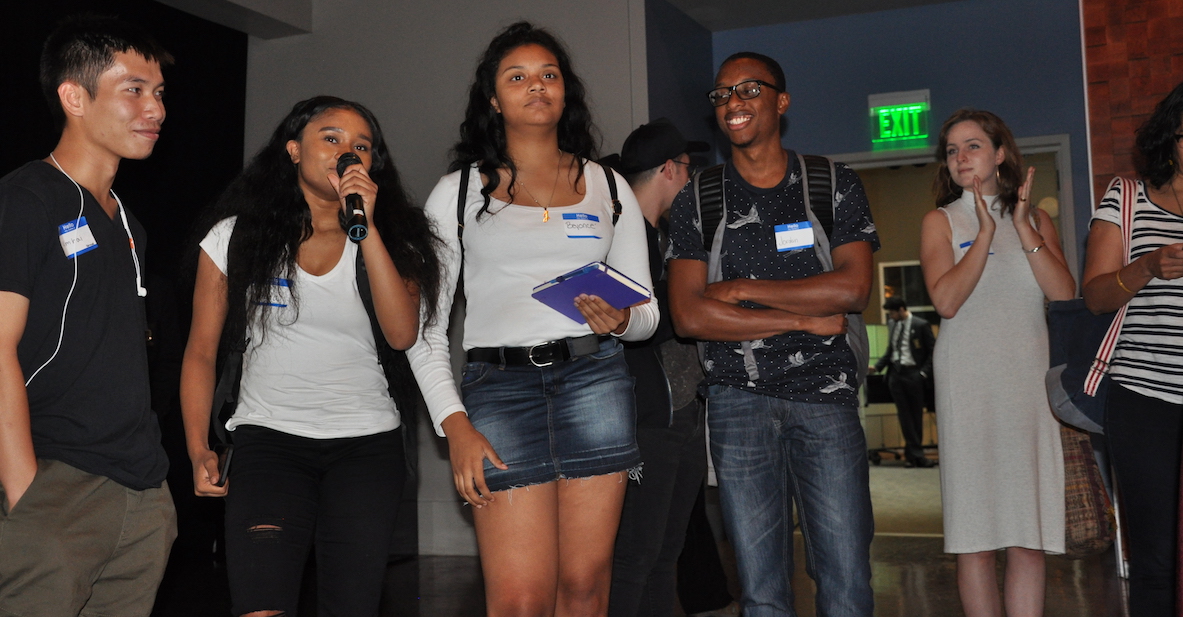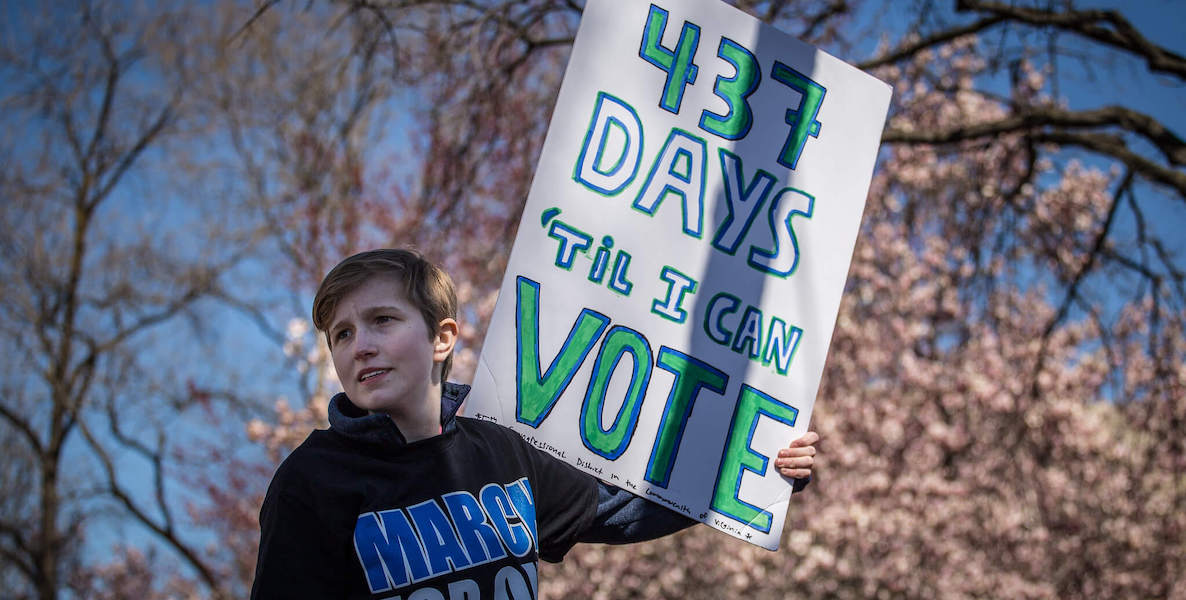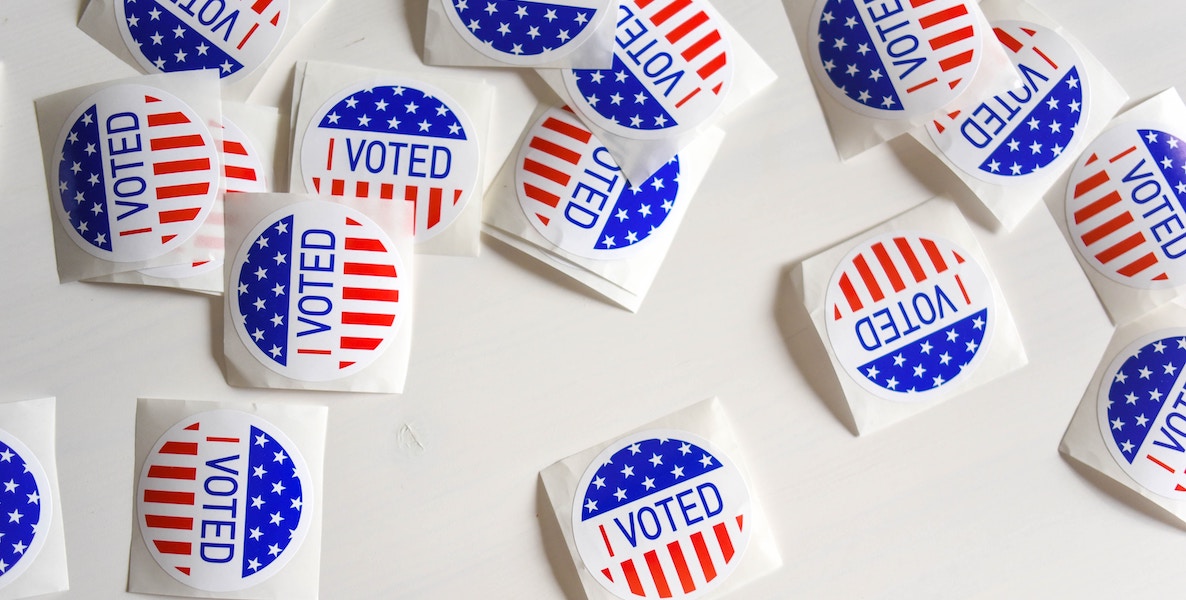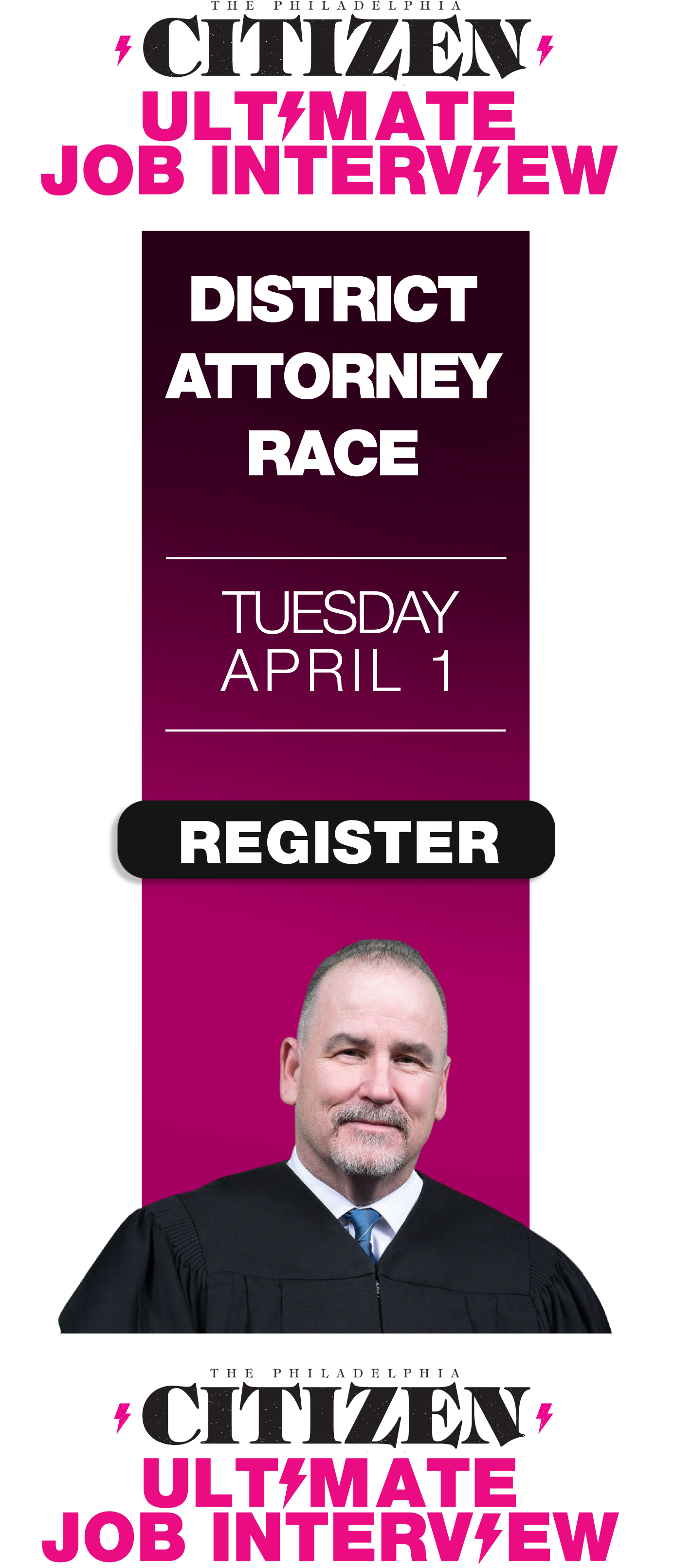The high school students of the Rush Votes Team at Arts Academy at Benjamin Rush High School had already registered 90 percent of eligible students to vote when schools got shut down due to the Covid-19 pandemic last month.
Sign the letterDo Something
Rush senior Bri Ramberg explains the frustration:
We never knew our right to vote would get taken away if we didn’t have an ID, and getting an ID right now isn’t that safe anymore. We know more than adults take us for and have been counting the days until we can claim our own voice. Corona has already taken a great deal from us; we can’t let it take away our chance at accessible voting too.
The only alternative is to print out a paper application for a mail-in ballot, because it allows voters to use the last four digits of their social security number in lieu of a state ID. This extra step helps some, but not all, students who, with schools and libraries closed, lack access to a printer, or even envelopes and stamps.
After the students discovered the problem, we partnered to draft an open letter to Secretary of the Commonwealth Kathy Boockvar, asking her to immediately change the online mail-in ballot application so it does not unintentionally disenfranchise hundreds of Philadelphia students, and thousands around the state.
The ratification of the 26th Amendment in 1971 guaranteeing the “The right of citizens… eighteen years of age or older, to vote…,” and the overturning of Pennsylvania’s Voter ID Law in 2014 were victories for democracy. The passage of Act 77, Pennsylvania’s Electoral Reform Bill, this past fall, held the same promise of increasing electoral participation in the Commonwealth.
About youth votersRead More
The online mail-in ballot application in its current form is having the impact of suppressing the votes of thousands of youth and older people.
Eighteen-year-old Joshua Barufaldi, a Rush senior, knows that every vote counts. “We have seen what complacency can do to a democracy, and we know the importance of a single vote,” he says. In addition, because of economic and systemic factors, the voters most likely to be disenfranchised will be from families who are low-income, immigrant, and from communities of color.
The Covid-19 pandemic is robbing the Class of 2020 of many rituals and milestones as they transition to college, work and adulthood. They are losing their college signing days, proms, graduations, and their last spring semester with high school friends.
There are almost 20,000 teens in Philly who become eligible to vote every year. Imagine if they could show up to vote and build a habit of civic participation at a young age.
There are almost 20,000 teens in Philly who become eligible to vote every year. Imagine if they could show up to vote and build a habit of civic participation at a young age.
Barufaldi represents the voice of young voters across Pennsylvania waiting to cast their first ballot. “We’ve spent so long waiting to get a chance to do our part, and we won’t let an unfair technicality keep us from doing it,” he says. The state needs to show that their voice is important, and they are a key part of the electorate.
The Department of State is listening and considering changes to the ballot A step-by-step guideHow to Vote By Mail
Despite the physical distance now between them, Rush students are continuing their efforts to register the last 10 percent of their classmates. Without the small but essential change to allow access to the online mail-in ballot application, their effort to register and engage their classmates, and the similar work of students in high schools across the city and state, may end in frustration.
Rush seniors have spent this school year studying democracy in America and eagerly await the opportunity to cast their first ballot. “We learned about voting and all the changes in our history that an engaged community can accomplish; we want to take part in our elections and shape our environment, and a vote by mail will finally give us an opportunity to in the midst of this pandemic,” explains Barufaldi.
We must show them that we’ve all learned the value of every citizen’s right to vote, and we won’t let them be disenfranchised in 2020.
And so we ask all citizens to please join Philly Youth VOTE! by signing our letter to Secretary of the Commonwealth Kathy Boockvar asking her to fix the online mail-in ballot application before the June 2 primary election.
Rhonda Feder is a civics teacher at the Arts Academy at Benjamin Rush and sponsor of the Rush Votes Team. Thomas Quinn is a civics teacher at Central High School and organizer of Philly Youth VOTE!
Photo courtesy Phil Roeder / Flickr


